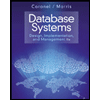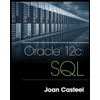Petrol 2 Petrol 3 5,600 1,000 ExxonMobil considers meeting its contractual obligations related to client demands for gasoline products to be a non-negotiable obligation. In addition to the associated purchase costs, it also costs $4 to process one barrel of crude oil into one barrel of finished gasoline product. ExxonMobil fears that their Beaumont Facility is operating at a point below optimal margin and is thus not achieving maximum profitability. Accordingly, ExxonMobil has hired you as a consultant to optimize the operations of the plant. In Question 21 and Question 22, you will complete optimization of ExxonMobil's Beaumont Facility operations. Hint 1: More octane content is good, and less octane content is less good. Less sulfur content is good, and more sulfur content is bad. Hint 2: As a consultant, it is important to understand who is paying for your services so that you know exactly which services you are expected to provide. In this case, you have been hired by the client ExxonMobil, which is a profit-driven company. Hint 3: You do not need to do anything special to obtain your initial guess values for this problem. You simply need to make a guess. Hint 4: Assume that no fuel inventory is retained. That is, assume that all fuel produced is immediately sold. Use the following prompt to Answer Questions 21 and 22 ExxonMobil's Beaumont, Texas facility manufactures 3 different types of finished gasoline product: petrol 1, petrol 2, and petrol 3. Each of gasolines is produced by blending 3 different types of crude oil in various combinations. The 3 types of finished gasoline product each differ in their octane rating and sulfur content. The sales price per barrel of finished gasoline blend, and the purchase piece per barrel of crude are provided in the following table: Gasoline Sale Price Purchase Price Crude Blend Petrol 1 [$/barrel] Type [$/barrel] $90.00 Crude 1 $85.00 Petrol 2 Petrol 3 $150.00 $110.00 Crude 2 $80.00 Crude 3 $77.00 The crude oil blended to form Petrol 1 must have an average octane rate of at least 10 pounds per finished barrel, and contain, at most, 1 pounds per finished barrel sulfur. The crude oil blended to form Petrol 2 must have an average octane rate of at least 8 pounds per finished barrel, and contain, at most, 2 pounds per finished barrel sulfur. The crude oil blended to form Petrol 3 must have an average octane rate of at least 6 pounds per finished barrel, and contain, at most, 1 pounds per finished barrel sulfur. The octane rating and sulfur content of each of the three types of crude oil are provided in the following table: Crude Octane Rating Sulfur Content Blend [lb/barrel] [lb/barrel] Crude 1 12 0.5 Crude 2 6 2.0 Crude 3 10 1.8 The ExxonMobil Beaumont Facility can purchase up to 6,500 barrels of each type of crude per day and produce up to 21,000 barrels total of finished gasoline product per day. The clients purchasing finished gasoline product from the Beaumont Facility hold contracts with Exxon Mobil that require the company provide them with following amounts of gasoline each day: Gasoline Blend Demand [barrels/day] Petrol 1 3,200 8
Petrol 2 Petrol 3 5,600 1,000 ExxonMobil considers meeting its contractual obligations related to client demands for gasoline products to be a non-negotiable obligation. In addition to the associated purchase costs, it also costs $4 to process one barrel of crude oil into one barrel of finished gasoline product. ExxonMobil fears that their Beaumont Facility is operating at a point below optimal margin and is thus not achieving maximum profitability. Accordingly, ExxonMobil has hired you as a consultant to optimize the operations of the plant. In Question 21 and Question 22, you will complete optimization of ExxonMobil's Beaumont Facility operations. Hint 1: More octane content is good, and less octane content is less good. Less sulfur content is good, and more sulfur content is bad. Hint 2: As a consultant, it is important to understand who is paying for your services so that you know exactly which services you are expected to provide. In this case, you have been hired by the client ExxonMobil, which is a profit-driven company. Hint 3: You do not need to do anything special to obtain your initial guess values for this problem. You simply need to make a guess. Hint 4: Assume that no fuel inventory is retained. That is, assume that all fuel produced is immediately sold. Use the following prompt to Answer Questions 21 and 22 ExxonMobil's Beaumont, Texas facility manufactures 3 different types of finished gasoline product: petrol 1, petrol 2, and petrol 3. Each of gasolines is produced by blending 3 different types of crude oil in various combinations. The 3 types of finished gasoline product each differ in their octane rating and sulfur content. The sales price per barrel of finished gasoline blend, and the purchase piece per barrel of crude are provided in the following table: Gasoline Sale Price Purchase Price Crude Blend Petrol 1 [$/barrel] Type [$/barrel] $90.00 Crude 1 $85.00 Petrol 2 Petrol 3 $150.00 $110.00 Crude 2 $80.00 Crude 3 $77.00 The crude oil blended to form Petrol 1 must have an average octane rate of at least 10 pounds per finished barrel, and contain, at most, 1 pounds per finished barrel sulfur. The crude oil blended to form Petrol 2 must have an average octane rate of at least 8 pounds per finished barrel, and contain, at most, 2 pounds per finished barrel sulfur. The crude oil blended to form Petrol 3 must have an average octane rate of at least 6 pounds per finished barrel, and contain, at most, 1 pounds per finished barrel sulfur. The octane rating and sulfur content of each of the three types of crude oil are provided in the following table: Crude Octane Rating Sulfur Content Blend [lb/barrel] [lb/barrel] Crude 1 12 0.5 Crude 2 6 2.0 Crude 3 10 1.8 The ExxonMobil Beaumont Facility can purchase up to 6,500 barrels of each type of crude per day and produce up to 21,000 barrels total of finished gasoline product per day. The clients purchasing finished gasoline product from the Beaumont Facility hold contracts with Exxon Mobil that require the company provide them with following amounts of gasoline each day: Gasoline Blend Demand [barrels/day] Petrol 1 3,200 8
Operations Research : Applications and Algorithms
4th Edition
ISBN:9780534380588
Author:Wayne L. Winston
Publisher:Wayne L. Winston
Chapter3: Introduction To Linear Programming
Section3.4: A Diet Problem
Problem 2P
Question
Answer these on an excel spreadsheet a. Identify and list all decision variables for this problem
b. Identify and list all constraints for this problem
c. Identify and describe the goal that you are trying to achieve

Transcribed Image Text:Petrol 2
Petrol 3
5,600
1,000
ExxonMobil considers meeting its contractual obligations related to client demands for
gasoline products to be a non-negotiable obligation. In addition to the associated
purchase costs, it also costs $4 to process one barrel of crude oil into one barrel of
finished gasoline product.
ExxonMobil fears that their Beaumont Facility is operating at a point below optimal margin
and is thus not achieving maximum profitability. Accordingly, ExxonMobil has hired you
as a consultant to optimize the operations of the plant. In Question 21 and Question 22,
you will complete optimization of ExxonMobil's Beaumont Facility operations.
Hint 1: More octane content is good, and less octane content is less good. Less sulfur
content is good, and more sulfur content is bad.
Hint 2: As a consultant, it is important to understand who is paying for your services so
that you know exactly which services you are expected to provide. In this case, you have
been hired by the client ExxonMobil, which is a profit-driven company.
Hint 3: You do not need to do anything special to obtain your initial guess values for this
problem. You simply need to make a guess.
Hint 4: Assume that no fuel inventory is retained. That is, assume that all fuel produced
is immediately sold.
![Use the following prompt to Answer Questions 21 and 22
ExxonMobil's Beaumont, Texas facility manufactures 3 different types of finished gasoline
product: petrol 1, petrol 2, and petrol 3. Each of gasolines is produced by blending 3
different types of crude oil in various combinations. The 3 types of finished gasoline
product each differ in their octane rating and sulfur content. The sales price per barrel of
finished gasoline blend, and the purchase piece per barrel of crude are provided in the
following table:
Gasoline Sale Price
Purchase Price
Crude
Blend
Petrol 1
[$/barrel]
Type
[$/barrel]
$90.00
Crude 1
$85.00
Petrol 2
Petrol 3 $150.00
$110.00
Crude 2
$80.00
Crude 3
$77.00
The crude oil blended to form Petrol 1 must have an average octane rate of at least 10
pounds per finished barrel, and contain, at most, 1 pounds per finished barrel sulfur. The
crude oil blended to form Petrol 2 must have an average octane rate of at least 8 pounds
per finished barrel, and contain, at most, 2 pounds per finished barrel sulfur. The crude
oil blended to form Petrol 3 must have an average octane rate of at least 6 pounds per
finished barrel, and contain, at most, 1 pounds per finished barrel sulfur. The octane
rating and sulfur content of each of the three types of crude oil are provided in the
following table:
Crude
Octane Rating Sulfur Content
Blend
[lb/barrel]
[lb/barrel]
Crude 1
12
0.5
Crude 2
6
2.0
Crude 3
10
1.8
The ExxonMobil Beaumont Facility can purchase up to 6,500 barrels of each type of
crude per day and produce up to 21,000 barrels total of finished gasoline product per
day. The clients purchasing finished gasoline product from the Beaumont Facility hold
contracts with Exxon Mobil that require the company provide them with following amounts
of gasoline each day:
Gasoline Blend
Demand
[barrels/day]
Petrol 1
3,200
8](/v2/_next/image?url=https%3A%2F%2Fcontent.bartleby.com%2Fqna-images%2Fquestion%2F6c994400-dbcd-46e9-901d-7906a41ec43f%2F59297d6f-c052-4406-848c-9f654abf79ef%2Fdao6rj_processed.png&w=3840&q=75)
Transcribed Image Text:Use the following prompt to Answer Questions 21 and 22
ExxonMobil's Beaumont, Texas facility manufactures 3 different types of finished gasoline
product: petrol 1, petrol 2, and petrol 3. Each of gasolines is produced by blending 3
different types of crude oil in various combinations. The 3 types of finished gasoline
product each differ in their octane rating and sulfur content. The sales price per barrel of
finished gasoline blend, and the purchase piece per barrel of crude are provided in the
following table:
Gasoline Sale Price
Purchase Price
Crude
Blend
Petrol 1
[$/barrel]
Type
[$/barrel]
$90.00
Crude 1
$85.00
Petrol 2
Petrol 3 $150.00
$110.00
Crude 2
$80.00
Crude 3
$77.00
The crude oil blended to form Petrol 1 must have an average octane rate of at least 10
pounds per finished barrel, and contain, at most, 1 pounds per finished barrel sulfur. The
crude oil blended to form Petrol 2 must have an average octane rate of at least 8 pounds
per finished barrel, and contain, at most, 2 pounds per finished barrel sulfur. The crude
oil blended to form Petrol 3 must have an average octane rate of at least 6 pounds per
finished barrel, and contain, at most, 1 pounds per finished barrel sulfur. The octane
rating and sulfur content of each of the three types of crude oil are provided in the
following table:
Crude
Octane Rating Sulfur Content
Blend
[lb/barrel]
[lb/barrel]
Crude 1
12
0.5
Crude 2
6
2.0
Crude 3
10
1.8
The ExxonMobil Beaumont Facility can purchase up to 6,500 barrels of each type of
crude per day and produce up to 21,000 barrels total of finished gasoline product per
day. The clients purchasing finished gasoline product from the Beaumont Facility hold
contracts with Exxon Mobil that require the company provide them with following amounts
of gasoline each day:
Gasoline Blend
Demand
[barrels/day]
Petrol 1
3,200
8
Expert Solution
This question has been solved!
Explore an expertly crafted, step-by-step solution for a thorough understanding of key concepts.
Step by step
Solved in 2 steps

Recommended textbooks for you

Operations Research : Applications and Algorithms
Computer Science
ISBN:
9780534380588
Author:
Wayne L. Winston
Publisher:
Brooks Cole

Np Ms Office 365/Excel 2016 I Ntermed
Computer Science
ISBN:
9781337508841
Author:
Carey
Publisher:
Cengage

A Guide to SQL
Computer Science
ISBN:
9781111527273
Author:
Philip J. Pratt
Publisher:
Course Technology Ptr

Operations Research : Applications and Algorithms
Computer Science
ISBN:
9780534380588
Author:
Wayne L. Winston
Publisher:
Brooks Cole

Np Ms Office 365/Excel 2016 I Ntermed
Computer Science
ISBN:
9781337508841
Author:
Carey
Publisher:
Cengage

A Guide to SQL
Computer Science
ISBN:
9781111527273
Author:
Philip J. Pratt
Publisher:
Course Technology Ptr

C++ for Engineers and Scientists
Computer Science
ISBN:
9781133187844
Author:
Bronson, Gary J.
Publisher:
Course Technology Ptr

Database Systems: Design, Implementation, & Manag…
Computer Science
ISBN:
9781285196145
Author:
Steven, Steven Morris, Carlos Coronel, Carlos, Coronel, Carlos; Morris, Carlos Coronel and Steven Morris, Carlos Coronel; Steven Morris, Steven Morris; Carlos Coronel
Publisher:
Cengage Learning
